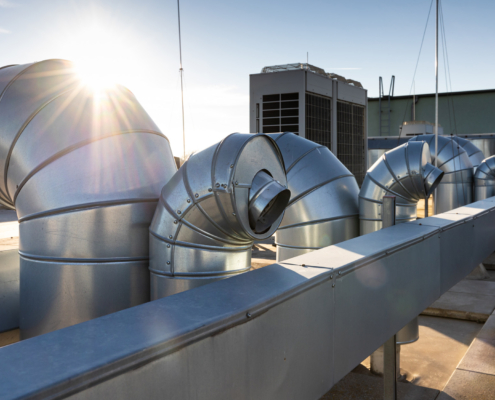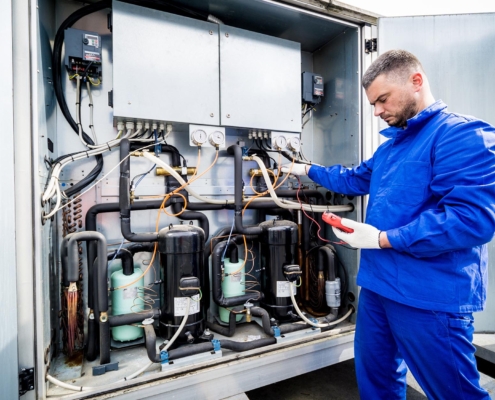 https://sammechanical.com/wp-content/uploads/2025/10/The-Hidden-Costs-of-Neglected-Steam-Systems-Steam-Trap-Repair.jpg
1250
2000
AbstraktMarketing
/wp-content/uploads/2024/01/sam-logo-crete-300x154.png
AbstraktMarketing2025-10-27 11:10:442025-10-27 11:10:47The Hidden Costs of Neglected Steam Systems: Steam Trap Repair
https://sammechanical.com/wp-content/uploads/2025/10/The-Hidden-Costs-of-Neglected-Steam-Systems-Steam-Trap-Repair.jpg
1250
2000
AbstraktMarketing
/wp-content/uploads/2024/01/sam-logo-crete-300x154.png
AbstraktMarketing2025-10-27 11:10:442025-10-27 11:10:47The Hidden Costs of Neglected Steam Systems: Steam Trap Repair How to Reduce Heating Costs
Heating costs can be a significant contributor to your overhead. However, there are several strategies you can implement to reduce heating expenses without compromising comfort or productivity. In this blog, we’ll explore ten valuable tips for business owners to decrease their spending on heating systems.
The Importance of Reducing Heating Costs
Cutting down on heating costs is crucial for commercial businesses. When you lower energy expenses, you boost profitability, gain a competitive edge, and cultivate an eco-friendly image. These factors are the keys to long-term success in today’s business world.
The Benefits of Reducing Heating Costs
- Cost Savings: The most apparent benefit is the immediate cost savings. By implementing energy-efficient practices, you can significantly lower your utility bills, freeing up resources for other critical business investments.
- Improved Profit Margins: Lower operating costs improve profit margins. Increased profitability allows you to reinvest in your business, expand operations, or allocate funds to strategic initiatives, fostering long-term growth and sustainability.
- Competitive Advantage: Demonstrating a commitment to energy efficiency and sustainability enhances your company’s reputation. Many consumers and clients prioritize eco-friendly businesses, making it a valuable selling point and attracting more customers.
- Environmental Responsibility: Reducing heating costs also means reducing greenhouse gas emissions and environmental impact. By decreasing your energy consumption, you’re contributing to a greener planet and fulfilling social responsibility goals.
- Stable Budgeting: Lower heating costs provide greater predictability in budgeting and financial planning. You can allocate resources more effectively knowing that your energy expenses are under control.
- Extended Equipment Lifespan: Regular maintenance and efficient operation reduce wear and tear on your heating equipment. This extends the lifespan of your HVAC system, delaying the need for costly replacements and minimizing downtime.
- Enhanced Employee Comfort: A well-maintained and comfortable workspace can boost employee morale and productivity. Employees can focus better on their tasks when they don’t have to contend with temperature fluctuations or discomfort.
- Reduced Maintenance and Repairs: Efficient heating systems experience fewer breakdowns and require less frequent repairs. This saves money and reduces disruptions, ensuring business continuity.
- Compliance with Regulations: Many regions have energy efficiency regulations and standards that businesses must adhere to. By reducing heating costs and optimizing your system, you’ll meet these requirements and avoid penalties.
- Resilience to Energy Market Volatility: Energy prices can fluctuate due to various factors. By reducing heating costs, your business becomes less vulnerable to the impact of rising energy prices, stabilizing your budget.
- Positive Employee and Customer Perception: A commitment to sustainability and responsible energy use enhances your reputation among employees and customers. It showcases your dedication to ethical business practices and can lead to stronger stakeholder relationships.
Saving heating costs for your business is big. If you want to improve your energy efficiency, read this article on how to choose the right HVAC system for your facility.
Reducing Heating Costs for Your Business: 10 Tips
Regular Maintenance
Regular maintenance is a fundamental step in heating system efficiency. Schedule routine inspections and servicing to identify issues before they escalate. Clean or replace filters, check for leaks, and calibrate thermostats to keep your system in top shape, reducing energy consumption.
Implement Zoning
Implementing zoning in your commercial building allows you to heat specific areas based on occupancy and usage. This means you’re not heating unoccupied spaces unnecessarily, resulting in significant energy savings. Zoning can be achieved by installing programmable thermostats and adjustable dampers in your HVAC system.
Invest in Proper Insulation
Inadequate insulation can lead to heat loss, increasing heating costs. Make sure your commercial building is well-insulated, paying attention to areas such as walls, roofs, and windows. Consider upgrading insulation materials or adding additional layers to improve thermal efficiency.
Seal Air Leaks
Air leaks can be a major source of heat loss in commercial buildings. Inspect doors, windows, and any openings where pipes or cables enter your building. Seal gaps and cracks with weatherstripping, caulking, or insulation to prevent warm air from escaping and cold air from entering.
Upgrade to Energy-Efficient HVAC Systems
If your heating system is outdated, consider upgrading to energy-efficient models. Newer HVAC systems are designed to be more efficient, reducing energy consumption and operating costs. Some energy-efficient systems may also qualify for tax incentives or rebates.
Program Thermostats Strategically
Invest in programmable thermostats that allow you to set temperature schedules based on your business hours. Lower the temperature during non-business hours and weekends, and raise it when employees and customers are present. This approach minimizes heating when it’s not needed, resulting in substantial savings.
Conduct Energy Audits
Energy audits can identify areas of inefficiency in your commercial building. Consider hiring professionals to conduct an audit to pinpoint areas where energy is wasted. Based on the auditor’s findings, implement targeted improvements to enhance energy efficiency and reduce heating costs.
Optimize Natural Sunlight
Use natural sunlight to your advantage. Keep blinds and curtains open during daylight hours to allow sunlight to naturally heat your building. Also, consider installing energy-efficient windows and skylights to capture and retain heat.
Engage Employees
Involve employees in your energy-saving efforts. Educate them about energy conservation practices and encourage them to be mindful of heating-related habits, such as closing doors and windows when heating is active.
Monitor and Adjust Accordingly
Implement an energy monitoring system that tracks your heating usage in real time. With this data, you can identify trends and patterns to make informed adjustments. For example, you can identify unusually high energy consumption during non-business hours and investigate the cause.

Partner With Sam Mechanical Services to Reduce Heating Costs
SAM Mechanical Services excels in minimizing heating costs. Our expertise and tailored solutions optimize efficiency, leading to substantial savings while maintaining a comfortable environment. We’re your trusted partner in cost-effective heating solutions. Reach out to our team to get started today.
Related Postings
 https://sammechanical.com/wp-content/uploads/2025/10/The-Hidden-Costs-of-Neglected-Steam-Systems-Steam-Trap-Repair.jpg
1250
2000
AbstraktMarketing
/wp-content/uploads/2024/01/sam-logo-crete-300x154.png
AbstraktMarketing2025-10-27 11:10:442025-10-27 11:10:47The Hidden Costs of Neglected Steam Systems: Steam Trap Repair
https://sammechanical.com/wp-content/uploads/2025/10/The-Hidden-Costs-of-Neglected-Steam-Systems-Steam-Trap-Repair.jpg
1250
2000
AbstraktMarketing
/wp-content/uploads/2024/01/sam-logo-crete-300x154.png
AbstraktMarketing2025-10-27 11:10:442025-10-27 11:10:47The Hidden Costs of Neglected Steam Systems: Steam Trap Repair  https://sammechanical.com/wp-content/uploads/2025/02/Worker-inspecting-commercial-HVAC-unit-on-roof.jpg
1250
2000
AbstraktMarketing
/wp-content/uploads/2024/01/sam-logo-crete-300x154.png
AbstraktMarketing2025-02-25 14:34:152025-02-25 14:34:23The Top Commercial HVAC Solutions for New Hampshire Businesses
https://sammechanical.com/wp-content/uploads/2025/02/Worker-inspecting-commercial-HVAC-unit-on-roof.jpg
1250
2000
AbstraktMarketing
/wp-content/uploads/2024/01/sam-logo-crete-300x154.png
AbstraktMarketing2025-02-25 14:34:152025-02-25 14:34:23The Top Commercial HVAC Solutions for New Hampshire Businesses https://sammechanical.com/wp-content/uploads/2024/12/Worker-looking-over-plans-for-HVAC-upgrade.jpg
1250
2000
AbstraktMarketing
/wp-content/uploads/2024/01/sam-logo-crete-300x154.png
AbstraktMarketing2024-12-10 14:41:512025-05-21 15:50:03The Financial Benefits of a Commercial HVAC Upgrade
https://sammechanical.com/wp-content/uploads/2024/12/Worker-looking-over-plans-for-HVAC-upgrade.jpg
1250
2000
AbstraktMarketing
/wp-content/uploads/2024/01/sam-logo-crete-300x154.png
AbstraktMarketing2024-12-10 14:41:512025-05-21 15:50:03The Financial Benefits of a Commercial HVAC UpgradeAbout
For over three decades SAM Mechanical has provided New Hampshire with the highest quality HVAC, plumbing, and mechanical services.

